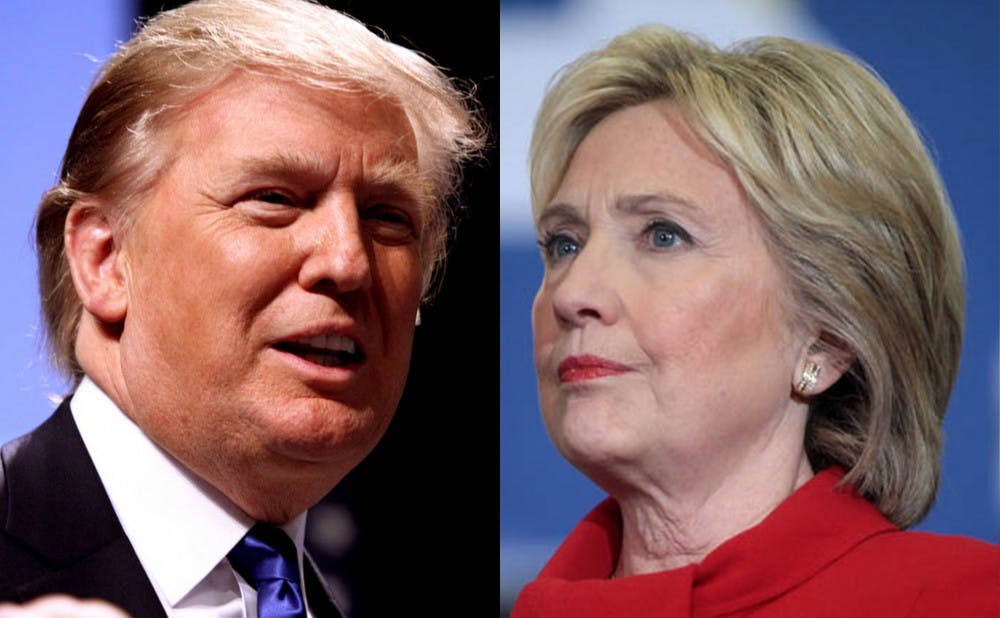Duke has signed a petition calling for presidential candidates to publicly share and debate their platforms on science and technology policy.
The petition, sent out by ScienceDebate.org earlier this month, asks presidential candidates to answer 20 questions on a range of topics, including research funding, public health, climate change and conservation. ScienceDebate co-founder Shawn Otto said Duke has particularly close ties to the organization, which is why it was one of the few universities to sign onto the letter.
For example, Otto said, Duke has offered in the past to host a televised debate between candidates on science policy issues if the candidates would agree. Michael Schoenfeld, Duke's vice president for public affairs and government relations, wrote in an email that the University would welcome such an opportunity.
“We use a number of ways to highlight for policy makers, including direct contact, social media and original reporting, among others,” Schoenfeld wrote.
Sheril Kirshenbaum, a former research associate in the University's Nicholas Institute for Environmental Policy Solutions, was one of ScienceDebate's co-founders in 2008, with the help of Stuart Pimm, Doris Duke chair and professor of conservation ecology.
It was because of this connection, Kirshenbaum wrote in an email, that ScienceDebate approached Duke to sign onto the letter. Other universities that have signed it include Tufts University, Northeastern University and the State University of New York's College of Environmental Science and Forestry.
To get Duke involved, ScienceDebate reached out to Nita Farahany, director of the Science and Society initiative. She then forwarded the request to administrators.
“Duke makes those calls by looking at the merits of the thing itself, what the purpose is and if it aligns with the purpose of Duke itself and at how its situated in the community and the world,” Farahany said. “Central administration decided it fit those criteria.”
Pimm added that it was unsurprising Duke would collaborate in this initiative, given President Richard Brodhead’s “commitment to ensuring academic speak out on a wide variety of issues.”
This is not the first time ScienceDebate has sent out such questions, Otto said, adding that it did so for the 2008 and 2012 elections.
“The issues of science, engineering, technology and the environment are impacting people’s lives as much as foreign policy, economic policy and other values talked about on the campaign trail,” he said. “But we have no organized forum or tradition of including them in the presidential debate discussion.”
Otto added that the 2008 iteration was influential in getting then-presidential candidate Barack Obama to focus more on science policy in his administration, and in 2012 for holding presidential candidate Mitt Romney accountable for his position on climate change.
The candidates have until September 6 to respond, and Otto noted that he is “hopeful" they will.
“There are 23 million scientists and engineers in the country, and the vast majority of them vote, so that’s a significant voting basis that will be paying attention to the quality of the candidates’ thought processes,” he said.
Farahany and Pimm noted that Duke connects science and policy in several ways, including through Science and Society.
The initiative has several outreach programs, Farahany said, including “Periodic Tables,” a program where scientists give informal scientific talks at Motorco Music Hall in Durham, and SciPol, an online forum to help people understand and discuss science-related policy and laws.
Among other backers, Pimm said, the support of universities is especially important to ensure science has a voice on the public stage.
“It brings a lot of weight to bear. It doesn’t matter who you are, anybody who thinks about it wants their children or their grandchildren to come to Duke,” Pimm said. “What it says is that we as a university are committed to not only providing the best instruction but also the best training to go out into the world.”
Get The Chronicle straight to your inbox
Signup for our weekly newsletter. Cancel at any time.

